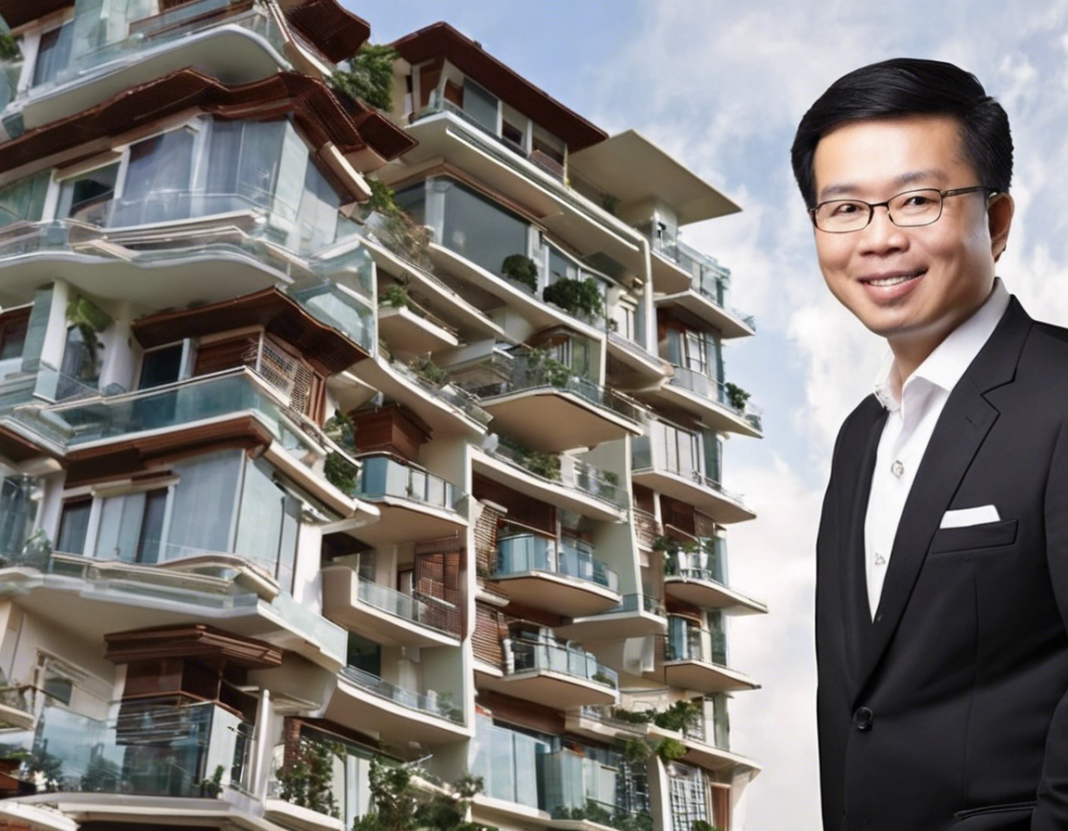Vietnam’s real estate market has been experiencing rapid growth in recent years. With a strong economy, political stability, and a burgeoning middle class, there is a high demand for residential and commercial properties in major cities like Ho Chi Minh City and Hanoi. In this dynamic market, Vietnamese property tycoons have emerged as key players, reshaping the skyline and driving the country’s economic development.
The Rise of Vietnamese Property Tycoons
A New Generation of Entrepreneurs
The Vietnamese property market has been traditionally dominated by state-owned enterprises. However, in the last two decades, a new generation of entrepreneurs has emerged, leading the way in developing high-end residential complexes, shopping malls, and office buildings. These tycoons have a keen eye for investment opportunities and a deep understanding of consumer trends, enabling them to create projects that meet the needs and aspirations of the growing middle class.
Localization and Innovation
One of the key factors contributing to the success of Vietnamese property tycoons is their ability to localize their projects. Understanding the unique cultural preferences and lifestyle choices of Vietnamese consumers, these entrepreneurs have customized their developments to cater to local tastes. From incorporating traditional design elements to offering amenities that resonate with the local populace, these tycoons have set themselves apart from international competitors.
Moreover, innovation plays a crucial role in the success of Vietnamese property tycoons. Whether it’s adopting sustainable building practices, leveraging technology for smart homes, or creating mixed-use developments that blend residential and commercial spaces, these entrepreneurs are at the forefront of bringing cutting-edge solutions to the market.
Key Players in the Vietnamese Property Market
Pham Nhat Vuong – Vingroup
Pham Nhat Vuong is perhaps the most well-known property tycoon in Vietnam. As the founder and chairman of Vingroup, he has built an empire that spans real estate, retail, healthcare, and education. With iconic projects like Vinhomes Central Park and Vincom Center, Vuong has transformed Vietnam’s urban landscape and set new standards for luxury living.
Le Phuoc Vu – Hoa Phat Group
Le Phuoc Vu is another prominent figure in the Vietnamese real estate industry. As the chairman of Hoa Phat Group, he has spearheaded the development of residential and industrial projects that have contributed significantly to the country’s economic growth. Vu‘s focus on quality construction and sustainable development has earned him a reputation as a forward-thinking leader in the sector.
Trinh Van Quyet – FLC Group
Trinh Van Quyet is a rising star in the Vietnamese property market. As the chairman of FLC Group, he has made a name for himself with ambitious projects like FLC Twin Towers and FLC Grand Hotel. Quyet‘s bold vision and strategic investments have positioned his company as a major player in the industry, attracting both local and international investors.
Challenges and Opportunities
Regulatory Environment
One of the key challenges facing Vietnamese property tycoons is the regulatory environment. While the government has introduced reforms to attract foreign investment and stimulate the property market, navigating complex regulations and bureaucratic hurdles can be a daunting task for developers. Striking a balance between compliance and business growth is crucial for tycoons to thrive in this competitive landscape.
Infrastructure Development
Infrastructure plays a critical role in the success of real estate projects. Vietnamese property tycoons are constantly looking for opportunities to invest in areas with developing infrastructure, as these locations have the potential for high returns in the long run. By collaborating with the government and other stakeholders to improve transportation, utilities, and public amenities, tycoons can unlock the full potential of their developments.
Market Volatility
Like any other market, the Vietnamese property market is susceptible to volatility. Fluctuations in interest rates, economic conditions, and geopolitical factors can impact property prices and demand. Vietnamese tycoons need to stay agile and responsive to market changes, diversifying their portfolios and adopting risk management strategies to mitigate potential risks.
FAQs:
- What is driving the growth of the Vietnamese property market?
-
The growth of the Vietnamese property market is driven by a strong economy, political stability, and a rising middle class with increasing purchasing power.
-
How do Vietnamese property tycoons differentiate themselves from international developers?
-
Vietnamese property tycoons differentiate themselves by localizing their projects, incorporating traditional design elements, and focusing on innovation to cater to the needs of local consumers.
-
What are some of the key challenges facing Vietnamese property tycoons?
-
Key challenges facing Vietnamese property tycoons include navigating the regulatory environment, developing infrastructure, and managing market volatility.
-
Which are some of the iconic projects developed by Vietnamese property tycoons?
-
Iconic projects developed by Vietnamese property tycoons include Vinhomes Central Park by Vingroup, FLC Twin Towers by FLC Group, and residential and industrial projects by Hoa Phat Group.
-
How do Vietnamese property tycoons contribute to the country’s economic development?
- Vietnamese property tycoons contribute to the country’s economic development by creating jobs, attracting foreign investment, and driving growth in the real estate sector.
In conclusion, Vietnamese property tycoons play a pivotal role in shaping the country’s urban landscape and driving economic growth. Through localization, innovation, and strategic investments, these entrepreneurs are redefining the real estate sector and setting new benchmarks for sustainable development. As they navigate challenges and capitalize on opportunities, Vietnamese tycoons are poised to leave a lasting impact on the property market and contribute to Vietnam’s continued prosperity.









